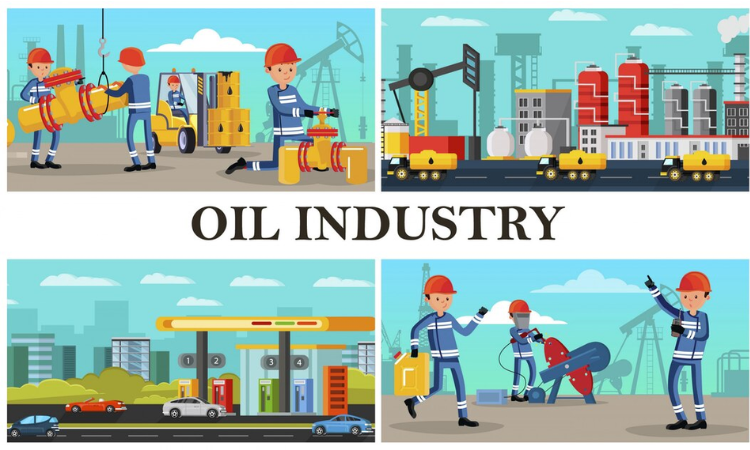Construction Fuel and Construction Fuel Delivery: Essential Insights for the Industry
Fuel plays a critical role in the construction industry, powering machinery, vehicles, and generators that keep operations running smoothly. With a diverse range of machinery involved in construction projects—such as excavators, bulldozers, cranes, and cement mixers—the demand for reliable fuel sources is high. However, beyond just fuel acquisition, efficient delivery services are equally vital to ensure uninterrupted project timelines. In this article, we’ll explore the types of construction fuel available and the importance of timely construction fuel delivery services.
Understanding Construction Fuel Types
Construction fuel encompasses several types of fuels used to power equipment and vehicles on construction sites. The most common fuels include:
- Diesel Fuel
Diesel is the primary fuel source for construction machinery. It powers everything from heavy-duty vehicles to generators. The advantages of diesel include its high energy density and efficiency in heavy equipment operation. Diesel engines also tend to be more durable and can operate effectively in various weather conditions. - Red Diesel
Red diesel, also known as gas oil, is a low-tax fuel used for non-road purposes, such as construction and agricultural machinery. It is dyed red to distinguish it from regular diesel, which is taxed for road use. The lower tax rate makes red diesel a cost-effective option for powering construction equipment. - Biodiesel
An eco-friendly alternative, biodiesel is made from renewable resources such as vegetable oils or animal fats. Although it can be used in standard diesel engines, it is often blended with traditional diesel to improve environmental sustainability without compromising performance. - Gasoline (Petrol)
While gasoline is less commonly used in construction equipment, it is still necessary for smaller tools and light vehicles that may be present on a construction site, such as chainsaws and some smaller generators. - HVO Fuel (Hydrotreated Vegetable Oil)
HVO is gaining popularity as a sustainable alternative to traditional diesel and red diesel. It reduces greenhouse gas emissions and is compatible with most diesel engines without requiring modifications. For companies aiming to minimize their carbon footprint, HVO is an appealing choice.
The Importance of Construction Fuel Delivery
Construction fuel delivery services are indispensable for maintaining project efficiency and minimizing downtime. Here are some reasons why having a reliable fuel delivery service is crucial for construction operations:
- Uninterrupted Operations
Construction projects often involve tight schedules where delays can significantly impact the timeline and budget. Ensuring a consistent supply of fuel helps avoid interruptions in operations due to equipment idling or downtime. By arranging fuel delivery services, companies can keep machinery running continuously, ensuring projects stay on track. - On-Site Fuel Management
Fuel management can be challenging on large construction sites with multiple vehicles and machinery requiring refueling. Professional fuel delivery services can provide on-site fuel management solutions, which include monitoring fuel levels, refueling machinery, and maintaining fuel storage tanks. This allows project managers to focus on other aspects of the project without worrying about fuel logistics. - Cost Efficiency
Bulk fuel delivery services often offer competitive rates compared to purchasing fuel in smaller quantities. Ordering fuel in bulk can reduce costs, and some suppliers offer fixed-rate contracts to protect against price fluctuations. Additionally, companies that use red diesel benefit from the lower tax rates compared to standard diesel. - Environmental Compliance
Construction sites must adhere to environmental regulations, including the proper storage and handling of fuels. Fuel delivery companies often provide fuel storage solutions that comply with regulations, such as bunded tanks and spill containment measures. Moreover, using environmentally friendly fuels like biodiesel or HVO helps companies meet sustainability goals and reduce emissions. - Emergency Fuel Supply
Unexpected fuel shortages or increased demand can occur due to unforeseen circumstances, such as extended working hours or sudden equipment needs. Reliable fuel delivery services can quickly respond to emergency requests, ensuring that construction operations continue without delay.
Choosing the Right Construction Fuel Delivery Service
When selecting a construction fuel delivery service, consider the following factors:
- Coverage Area
Ensure that the delivery service covers your construction site’s location, especially if the project is in a remote area. - Delivery Schedule Flexibility
Look for providers that offer flexible delivery schedules to meet your project’s specific needs. Some companies offer same-day or emergency deliveries to accommodate sudden fuel requirements. - Quality of Fuel
The quality of the fuel is paramount. Ensure that the supplier provides clean, high-quality fuel to avoid issues such as clogged filters or engine problems. - Additional Services
Some suppliers offer fuel management services, equipment rental, and compliance assistance, which can add value to the fuel delivery service.
Conclusion
Construction fuel and fuel delivery are integral components of the construction industry. Choosing the right type of fuel and a reliable delivery service ensures that projects run efficiently, meet environmental standards, and stay within budget. By understanding the various fuel options and the benefits of professional delivery services, construction companies can optimize their operations and keep their projects moving forward seamlessly.






